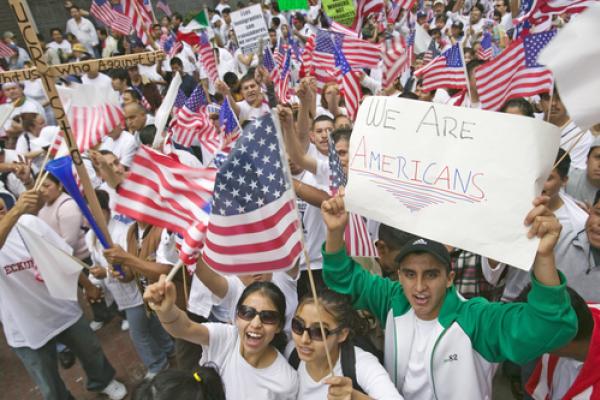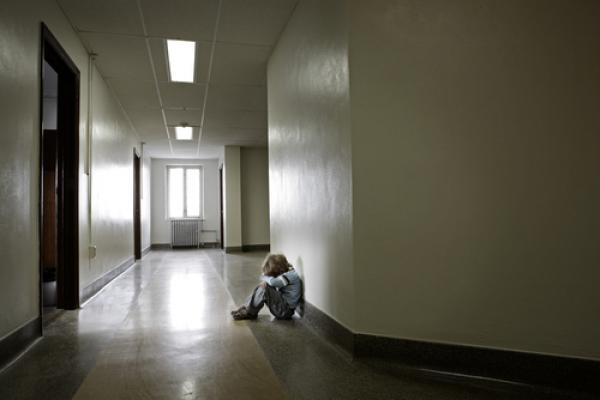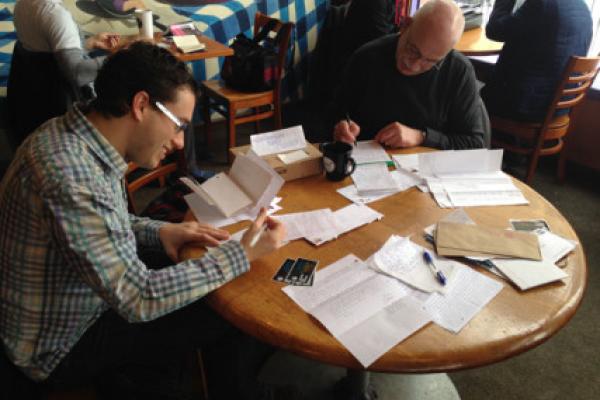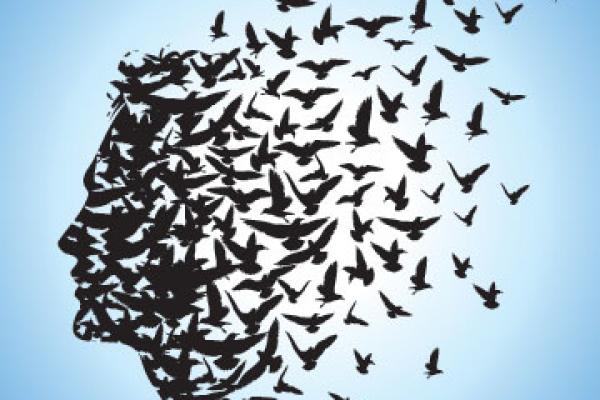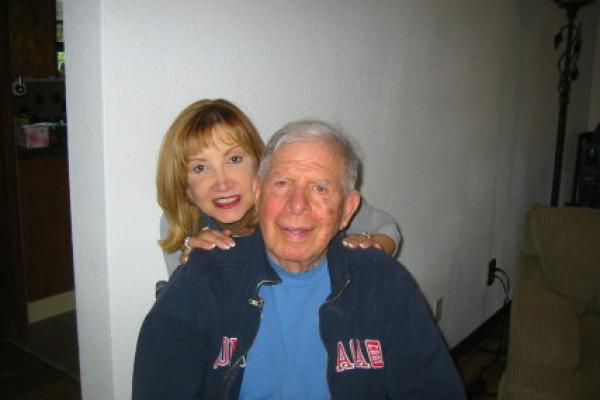I’m a white southerner, ordained Baptist, and have built a career over the past decade working on a broad spectrum of projects in the civic sector. In that time I’ve been blessed to lead and work on some of the most prominent issues of social change throughout the globe. Whether it was working on funding for our veterans, organs for kids who need transplants, better schools and public transit, justice for Trayvon Martin, freedom for the Wilmington 10, or on political campaigns — I’ve had the opportunity to help grow and lead some of our nation’s largest and most vital organizations. Now, inspired by those in our generation who choose to dream instead of choosing despair, I’ve stepped out on faith to join the immigration reform movement. I hope you’ll pledge to join it as well.
Debt from college loans makes some men and women postpone joining a religious community, according to a survey of men and women professing final vows in a religious order.
Ten percent of those who professed final vows in 2013 had an average amount of $31,000 in college debt and the average length of delay was two years, according to “New Sisters and Brothers Professing Perpetual Vows in Religious Life: The Profession Class of 2013.” The annual survey was conducted by the Georgetown University-based Center for Applied Research in the Apostolate (CARA).
Read the entire survey here.
A recent report by OXFAM offered some sobering data about both the concentration and flow of wealth in the world today. A few key points, also summarized by a new business article on The Atlantic website , include:
- The richest 85 people in the world control as much wealth as the poorest 3,000,000,000 people;
- Nineteen out of 20 “G20” countries are experiencing growing income inequality between rich and poor;
- In the United States in particular, 95 percent of the post-financial-crisis capital growth has been amassed by the richest 1 percent of Americans;
- While domestic income inequality continues to grow, the income tax rates for wealthiest Americans have steadily dropped.
My first reaction to seemingly immoral concentrations of wealth, and the systems that enable it, is anger and a compulsion to call them out, to change them and to distribute the world’s treasures evenly among all of God’s people.
But what if we need the insanely wealthy to realize a kingdom-inspired vision for our world?
Despite all the modern conveniences of the 21st century, our information-saturated culture, an exhaustive supply of self-help books, and giant advances in medical technology, doesn’t it seem like our society is more stressed, our anxiety higher, and more of our kids prescribed behavior modification drugs?
What if one of the reasons for our strung-out culture was the social, emotional, mental, and physiological outworking of the effects of poverty?
In the latest release of the Shriver Report, Dr. Nadine Burke Harris, founder of the California Pacific Medical Center’s Bayview Child Health Center, has found through medical research and experiences of her patients that the stress of poverty can be manifested in alarming behaviors and predispositions.
Leslie Zukor was a 19-year-old student at Reed College studying prison rehabilitation programs when something jumped out at her.
“Not all prisoners are religious, and I wanted them to know that to turn your life around and be a good and productive member of society does not require a belief in God,” she said. “I just thought, wow, it is time to see about getting other perspectives in there.” While there were programs tackling drug abuse, physical and sexual abuse, technical training, and more, all of them were offered by faith-based organizations. Where were the options for those behind bars who are atheists, like her?
So Zukor launched the Freethought Books Project, collecting books about atheism, humanism, and science and sending them to interested prisoners. She estimates that since her first book drive in 2005, she has given out 2,300 books, magazines, and newspapers to perhaps hundreds of prisoners across the country.
I was down in Mexico a few years ago for a gathering of peers who are leading faith communities around the world. It was a rich time of conversation, encouragement, and visioning.
Walking through a local Mexican neighborhood between sessions, something struck me. While those of us in the Minority World (often called the 1st or Western World) are thinking and talking about our theology, most of the folks in the Majority World (often called the 3rd World) have no choice but to simply live into their theology. Talking about our theology, faith, and practice in lecture halls, church buildings, and conference rooms is a luxury that the vast majority of Jesus followers in the world have no opportunity to participate in.
It’s not necessarily a bad thing, but it is reality. And those of us with this luxury better own up to it, because it is easy for us in the West to think we have a corner on the market of theology, which we then project (whether consciously or subconsciously) onto the rest of the world. But who's to say theology built in academia is any more valid than theology build in the realities of everyday life?
Arriving home from school on Jan. 22, 1973, Mary Wissink noticed her mother was unusually animated.
The dining room table was pulled away from the wall for a festive meal. The linens were ironed. The smell of turkey, dressing, and sweet potatoes wafted through the house. Mom was polishing the silver.
Wissink, then a sophomore in high school, realized her mother had come home from work early to prepare a feast.
“Mary,” her mom said, “today you have the right to your own body.”
It was the day the U.S. Supreme Court affirmed the legality of a woman’s right to an abortion. Wissink and her family have been celebrating Roe v. Wade anniversaries ever since.
